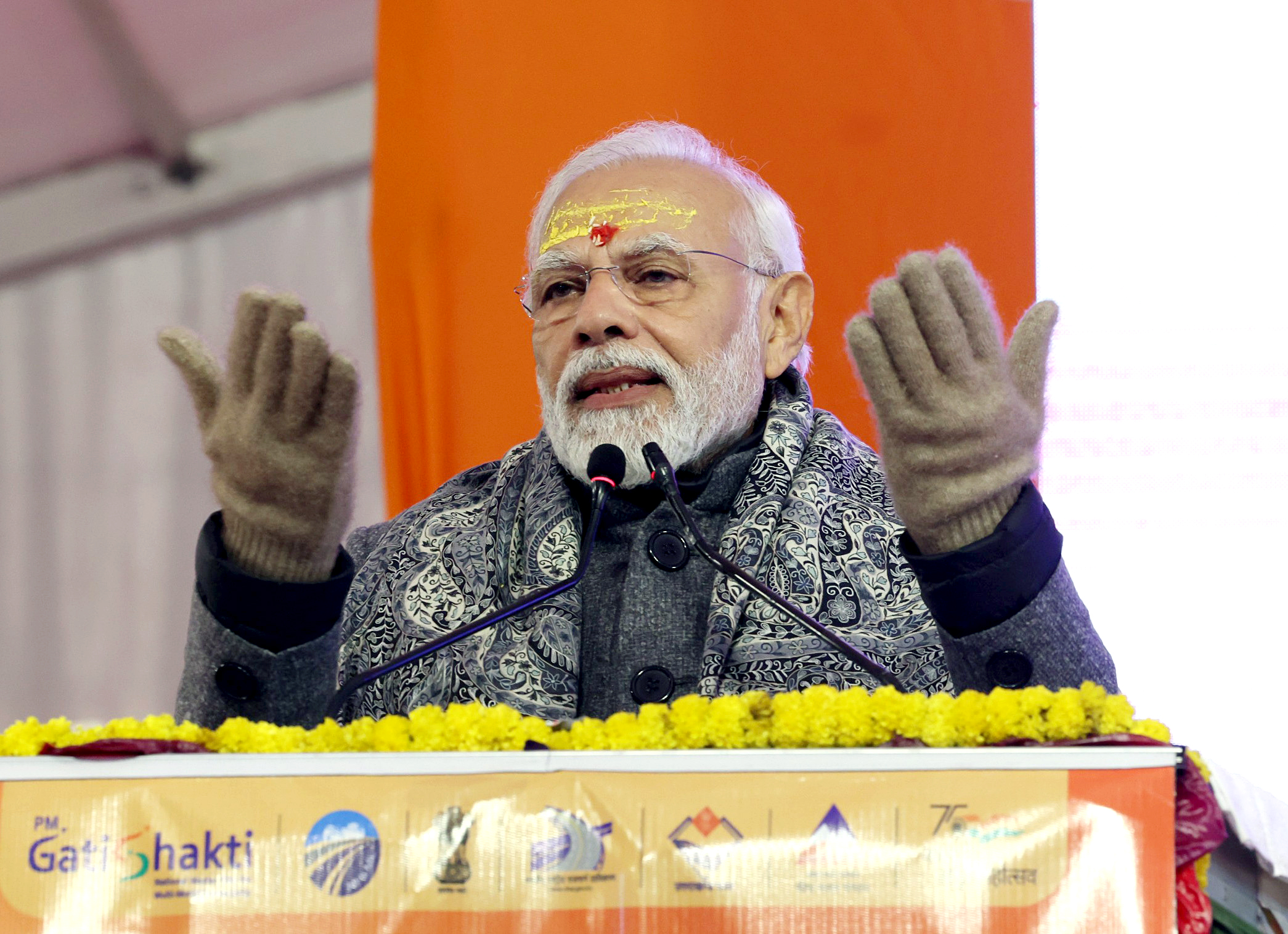India asks diplomats and envoys to be prepared to deal with all possible challenges from the Chinese government during Xi Jinping’s third term.
NEW DELHI: With Chinese President Xi Jinping’s unprecedented third term being viewed as only the beginning of a more assertive China, India has expedited diplomatic and strategic efforts to deal more effectively with Beijing’s aggressive agenda in future. As part of this strategy, New Delhi not only activated its robust diplomatic network to be ready to counter any challenges, but also sent out strong signals to Beijing over its border misdeeds. Prime Minister Narendra Modi’s “well-planned” presence at a village on the India-China border on Friday was aimed at setting the agenda to tackle the Chinese threat. PM Modi’s address at Uttarakhand’s Mana, which is the last Indian village on the India-China border, is being viewed by diplomats as a crucial development amid the lingering LAC (Line of Actual Control) row between New Delhi and Beijing. “PM Modi himself chose to address a rally at Mana in what was a blunt message to Beijing that India was determined and cautious to protect its borders from any kind of aggression from the other side,” diplomats told The Sunday Guardian. Nothing could have underlined India’s strong message better than these words of PM Modi: “Every village located in the border areas will be now considered as the first village of India.” He referred to all the villages situated near international borders and far-flung areas. “In fact, the message was sent out to Beijing that India will remain focused on villages close to LAC and will not, therefore, tolerate any kind of aggressive action there,” explained the diplomats. By laying the foundation stone for road widening projects worth Rs 1,000 crore in the areas including Mana village, the PM sought to signal that India was high on action in terms of safeguarding its borders with China. The road widening projects near the border will help locals and defence forces alike, and this will be a message for China, say diplomats.
According to the Prime Minister’s Office (PMO), the two road widening projects—from Mana to Mana Pass (NH07) and from Joshimath to Malari (NH107B)—“will be another step towards providing last-mile all-weather road connectivity to our border areas”. What is also of importance is that apart from boosting connectivity, these projects will also prove beneficial from a “strategic point of view”.
In another important development, PM Modi in Gujarat interacted with Indian envoys from 118 countries, both ambassadors and high commissioners, during which he laid out the vision for India’s foreign policy on Friday. Top sources told this newspaper that a possible Chinese strategy under Xi Jinping’s third term was elaborately discussed during the meeting. “India’s diplomatic response and preparedness were also discussed, during which the Indian leadership made valuable suggestions,” sources said. External Affairs Minister S. Jaishankar held a separate meeting with India’s ambassadors to China and the US. “The reports about China ready to pursue a more aggressive strategy in terms of LAC figured in the meeting,” sources said, adding, “diplomats were briefed about what India’s strategy would be like.” “More resolutely and with more determination, India needs to counter China’s challenge. This is what was shared with the envoys,” sources said. Only two days ago, EAM Jaishankar delivered a blunt message to China, saying that peace and tranquillity in the border areas clearly remained the basis for normal relations between India and China. Jaishankar’s statement was quite important as it came amid reports that China would be more aggressive under Xi Jinping in his third term.
In what is being seen as another important development amid the growing threat of “fresh aggressive behaviour” from Beijing, the Modi government decided to improve connectivity on the frontier with China. The government proposed the construction of six new roads stretching over 2,178 kilometres in Arunachal Pradesh. The development has come amid heightened tensions along the LAC since May 2020, when China deployed a large number of troops and heavy equipment to change the status quo in eastern Ladakh. Diplomats believe that India will continue to expand its infrastructure in the regions bordering China in what will be a strong signal to Beijing over the LAC row.

